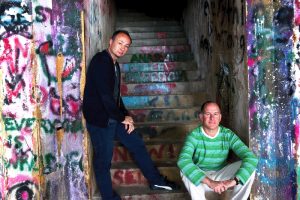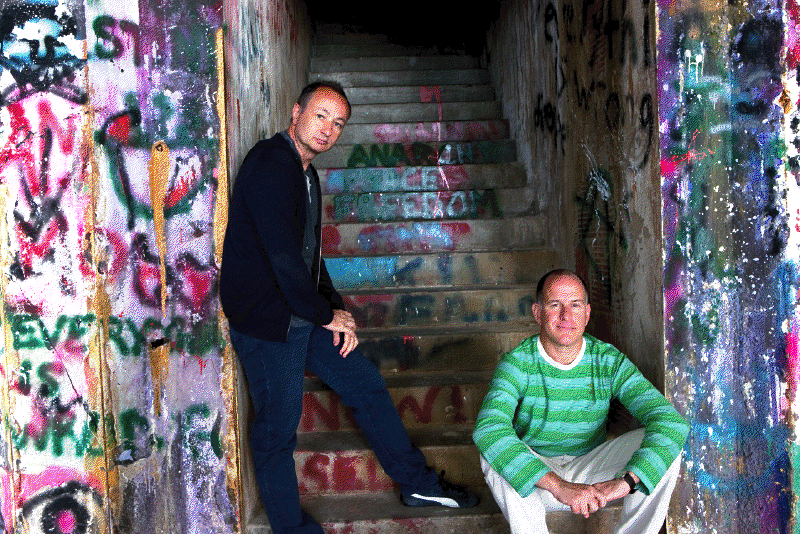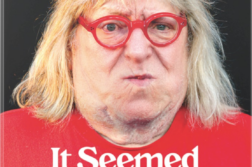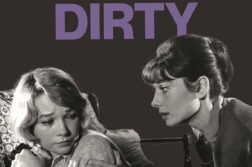IF you don’t know the names of Fenton Bailey and Randy Barbato, you may have missed a lot of GLBT cinema over the past twenty years. With film and TV credits in the hundreds, Bailey and Barbato are both directors and producers whose World of Wonder production studio is responsible for a vast number of documentary films and cable TV series since 1990.
Movie documentaries that Bailey and Barbato have co-directed (as well as produced) include The Real Ellen Story (1997), Party Monster (1998), The Eyes of Tammy Faye (2000), 101 Rent Boys (2000), Out of the Closet, Off the Screen: The Life of William Haines (2001), Hidden Führer:  Debating the Enigma of Hitler’s Sexuality (2004), Inside Deep Throat (2005), When I Knew (made for TV, 2008), and this year’s Becoming Chaz (2011), the first film in the Oprah Winfrey Documentary Club. Among the numerous TV shows they’ve produced—at last count over 150—are The RuPaul Show, Housebusters, and the current hit series Girls Who Like Boys Who Like Boys.
Debating the Enigma of Hitler’s Sexuality (2004), Inside Deep Throat (2005), When I Knew (made for TV, 2008), and this year’s Becoming Chaz (2011), the first film in the Oprah Winfrey Documentary Club. Among the numerous TV shows they’ve produced—at last count over 150—are The RuPaul Show, Housebusters, and the current hit series Girls Who Like Boys Who Like Boys.
Born and raised in England, Fenton Bailey left the UK in 1982 and never looked back. Randy Barbato was raised in New Jersey and made the much shorter trip to New York City to attend NYU, which is where he met Bailey in the late 1980’s. Embracing their mutual admiration and fascination for pop culture, the two became lovers and formed the rock band The Fabulous Pop Tarts before dropping out of school and focusing on documentary filmmaking. Since its establishment in 1990, World of Wonder has become one of the most recognizable brands of GLBT entertainment in the world.
For this exclusive interview I caught up with Bailey and Barbato at World of Wonder in Hollywood.
Gay & Lesbian Review Worldwide: How did you two meet at NYU?
Randy Barbato: We were in the graduate film program, and we shot each other’s feature film.
GLR: And out of that you formed The Fabulous Pop Tarts.
RB: Yes. A lot of times we would cut classes and head over to the Pyramid Club where the drag queens used to hang out for happy hour. Ever since then we’ve been cutting classes and having cocktails.
GLR: How have producing and distributing films changed over the years?
Fenton Bailey: It’s changed drastically over the years. There used to be this vast difference between film and TV; and really they’re sort of gradually come together. It’s a good thing, because if you’re a storyteller, you can make films for TV or theatrical release. There are many more ways of seeing films.
GLR: Do you find television distribution kind of different?
RB: It’s different when dealing with the networks. That’s where we do most of our business. We produce independent films, but the majority of our stuff is television. The schedule is different. With television there’s this sort of place with many channels. People need content, even though the turnaround is quicker.
GLR: Do you two consider the political aspects of a film before getting behind it?
RB: No, we do what we want to do; we do what moves us. That’s what we’ve always done. We’ve been pretty consistent for the last twenty years—being attracted to material that other people might consider marginal or fringe. We’ve always thought of the marginal or fringe as mainstream because that is our mainstream. That isn’t because we’re particularly political, it’s because that’s just who we are.
GLR: As producers, how do you deal with directors or other talent who are not necessarily cooperative?
RB: We’re also directors, so we know the beast. We’ve had our company now for twenty years. Inside that company we have lots of producers and directors working with us. They’re incredibly talented people who we’ve had long relationships with.
FB: Whether it’s talent or not—every-body can have issues. Hopefully, we can talk to him or her about what’s real and what’s not.
GLR: What have been the highlights or greatest accomplishments of your career?
RB: At the time you’re making the film, you think that’s it. We just finished Becoming Chaz. The Eyes of Tammy Faye was a really important film for us. When we made The Real Ellen Story it was pretty special. We learned a lot making the film Monica in Black and White, about Monica Lewinsky.
GLR: Can you watch your older work?
FB: We watch it like five million times before we lock it.
RB: Once it’s finished it’s no longer ours to consider. It’s now for other people to review and comment. Once it’s finished I never look at it again.
GLR: Is there a project or subject you really want to make a film about?
RB: I’d like to make a film about Liberace. He was an important figure, an intersection of the younger and older gay experiences. He was a dazzling showman, of course.
GLR: Earlier you mentioned that ever since NYU you have been cutting classes and mixing cocktails. After so many years together, how do you separate the professional from the personal?
FB: Well we did separate our personal life from our professional about seven years ago when we split up.
GLR: How has that worked for you?
FB: Well, we only talk to each other when we’re on the phone doing interviews. After this I will not talk to Randy for three weeks.
RB: Fenton, he’s going to think you’re
serious!
FB: I’m not.
GLR: You knew RuPaul before he was a household name. How did you meet him?
RB: We were down in Atlanta performing and we saw him out on the street putting up posters of himself that said, “RuPaul is everything.” He was wearing a crazy outfit. That was over twenty years ago. Things haven’t changed much since.
GLR: You mentioned earlier that when you are done with a film, it becomes something for others to watch and comment on. What do you think of these interviews in which you discuss your work and yourselves?
FB: We’re always happy to talk about our work. It might be inspiring to other people. Sometimes you can get frustrated when you’re trying to explain what you’re intention was in a film. People thought we were just making fun of Tammy Faye. We were not making fun of her. If you have to explain your intentions, it’s like something in the film perhaps didn’t work.
RB: So much of what we do and what we’re about is not just finding and creating opportunities for ourselves. So much of our work is not designed to educate or to propagandize or to politicize, but we like it when we can inspire or create opportunities for people who want to make things. The business we are in is a business of “No.” It’s a very difficult business for people to make it into, but then to sustain as well. The secret of our success is that we just haven’t gone away. So much of this atmosphere can be very disheartening and challenging just to stick around.
John Esther is a writer based in Los Angeles.





